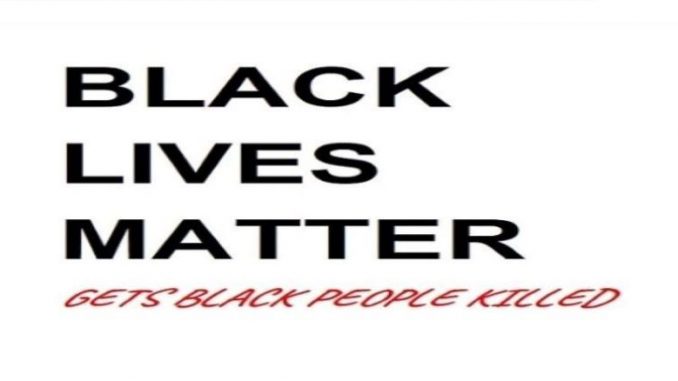
Black Lives Matter has been accused of demonizing police and heightening racial tensions. I agree with those criticisms, but the movement has an even more basic problem.
It threatens black lives.
After declining for years, homicide rates began to rise in 2014. The violence wasn’t spread evenly: of the increase in killings during 2017, around a third took place in largely African American areas of Chicago. Baltimore saw more bloodshed too. Both cities would benefit from the sort of proactive policing that helped reduce New York’s crime rates in the early 90’s. But thanks to #BLM, they’re unlikely to get it.
A poll published last year by the Pew Research Center found that 72% of law enforcement officers believed their colleagues have become less likely to stop and question suspicious individuals. The reason? No one wants to be the next Darren Wilson.
In 2014, Michael Brown was shot and killed after he attacked Wilson. Although eye witness accounts and two autopsies backed up Wilson’s version of events, Black Lives Matter activists spread the claim that Brown had been shot execution-style with his hands up. Wilson ultimately lost his job and was forced into hiding. Meanwhile, protests broke out across the country–some of which turned violent.
In light of this, it makes sense many officers would feel more reluctant to do things like confront possible parole and probation violations, something critics have dubbed “the Ferguson Effect.” It’s not hard to see why that reluctance correlates with more killings: figures from Baltimore showed that 36 percent of those arrested for homicide in 2017 were either on probation or parole. And while this endangers society at large, African Americans face the biggest risk: despite comprising just thirteen percent of America’s population, blacks make up around half its homicide victims.
RELATED NEWS: Illegal Immigration Ruined A Vet’s Life. He’s Not Alone.
When asked whether Baltimore residents wanted police to back off, Rev. Kinji Scott was clear: “No. That represented our progressives, our activists, our liberal journalists, our politicians, but it did not represent the overall community. Because we know for a fact that around the time Freddie Gray was killed, we start to see homicides increase. We had five homicides in that neighborhood while we were protesting.”
Obviously, unjustified police shootings are unacceptable (and as Daniel Shaver proved, they don’t just happen to African Americans). However, vilifying every use of force before the facts are known only disincentivizes good police work, and that costs lives.
Most of them are black.
Be the first to comment